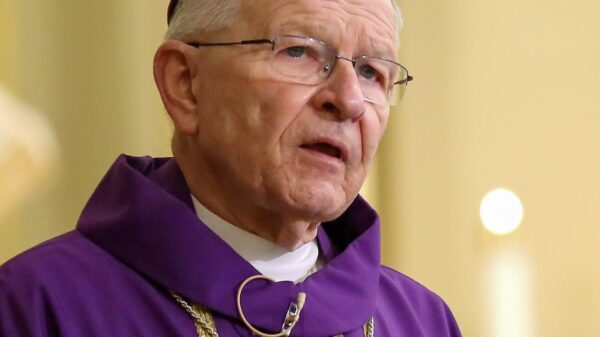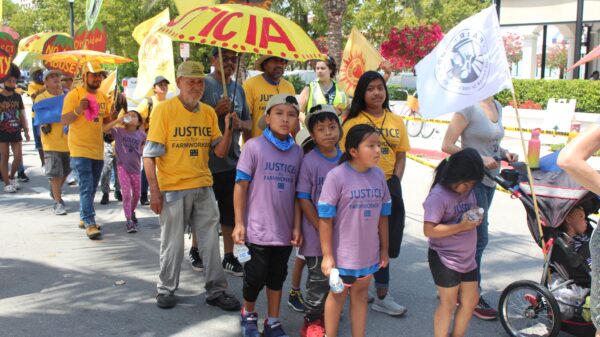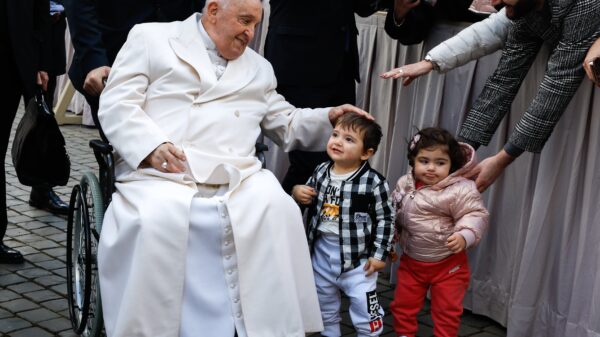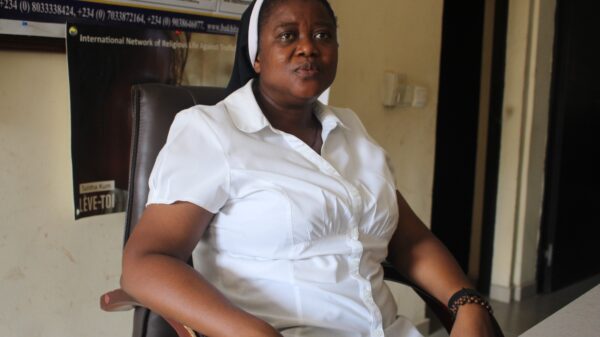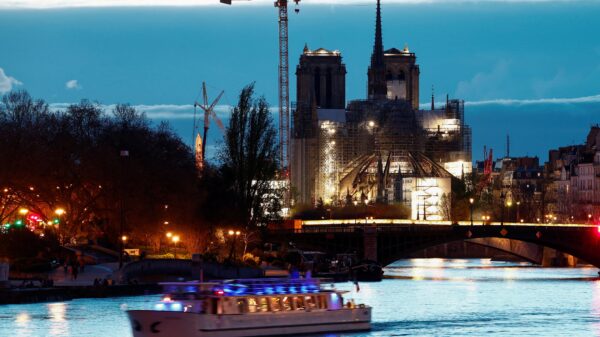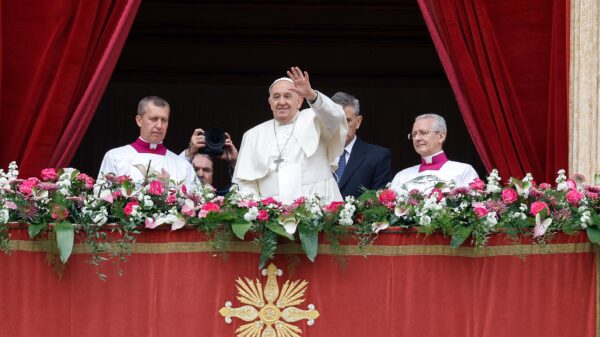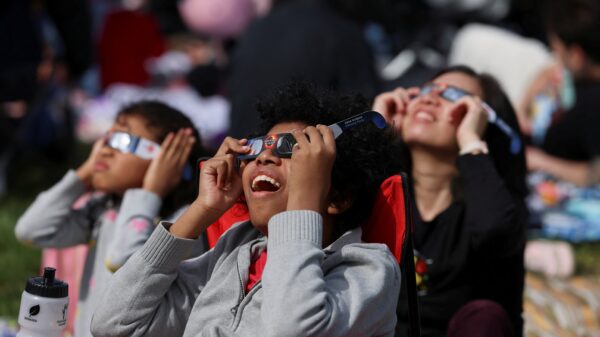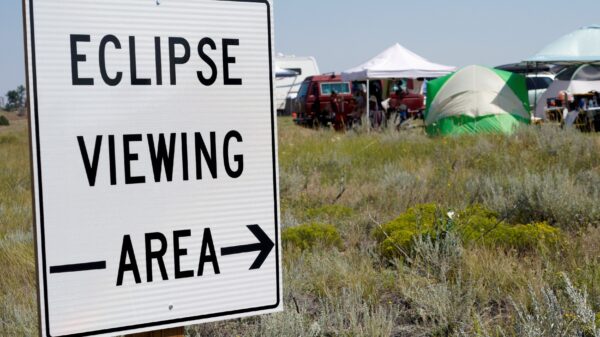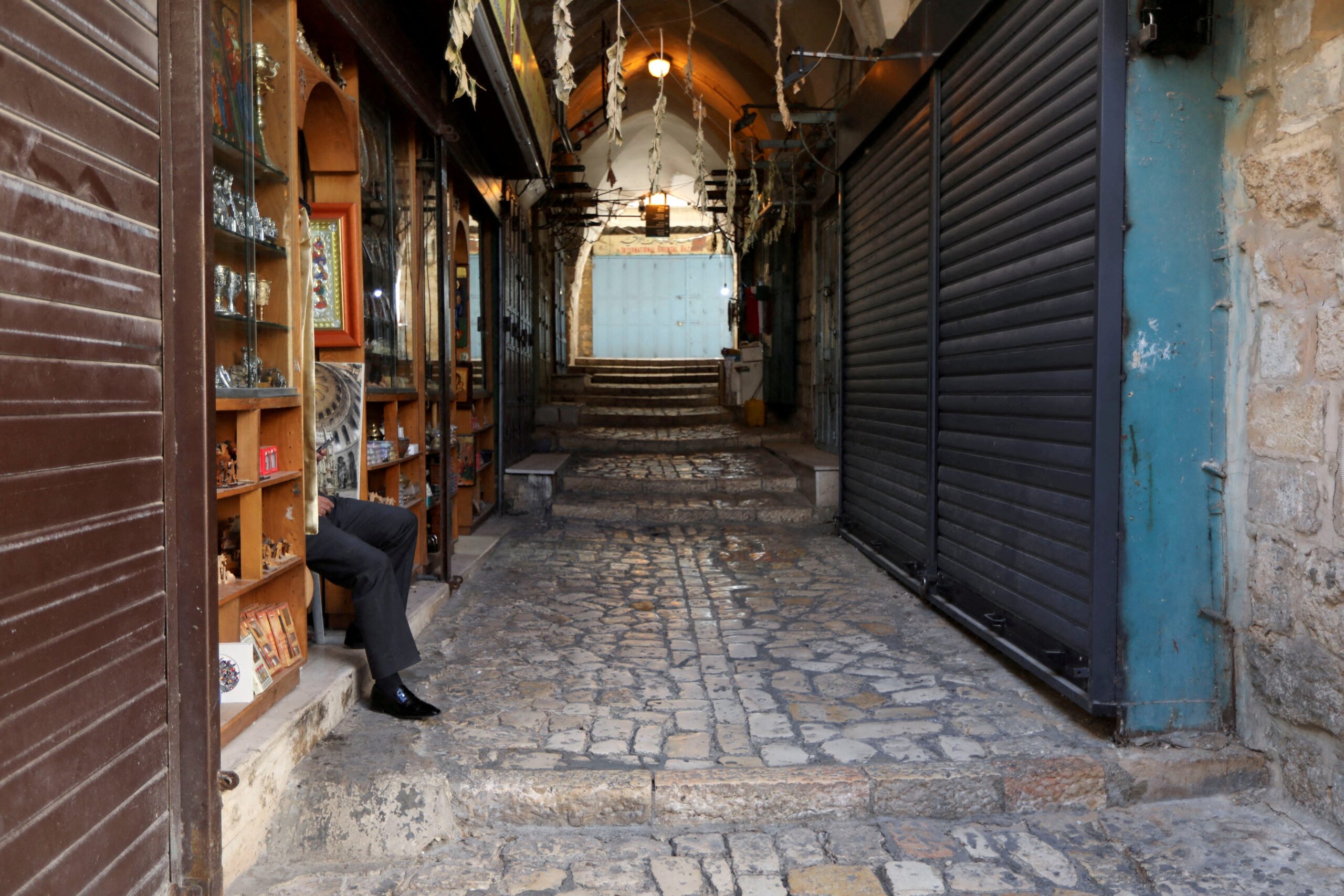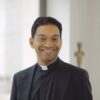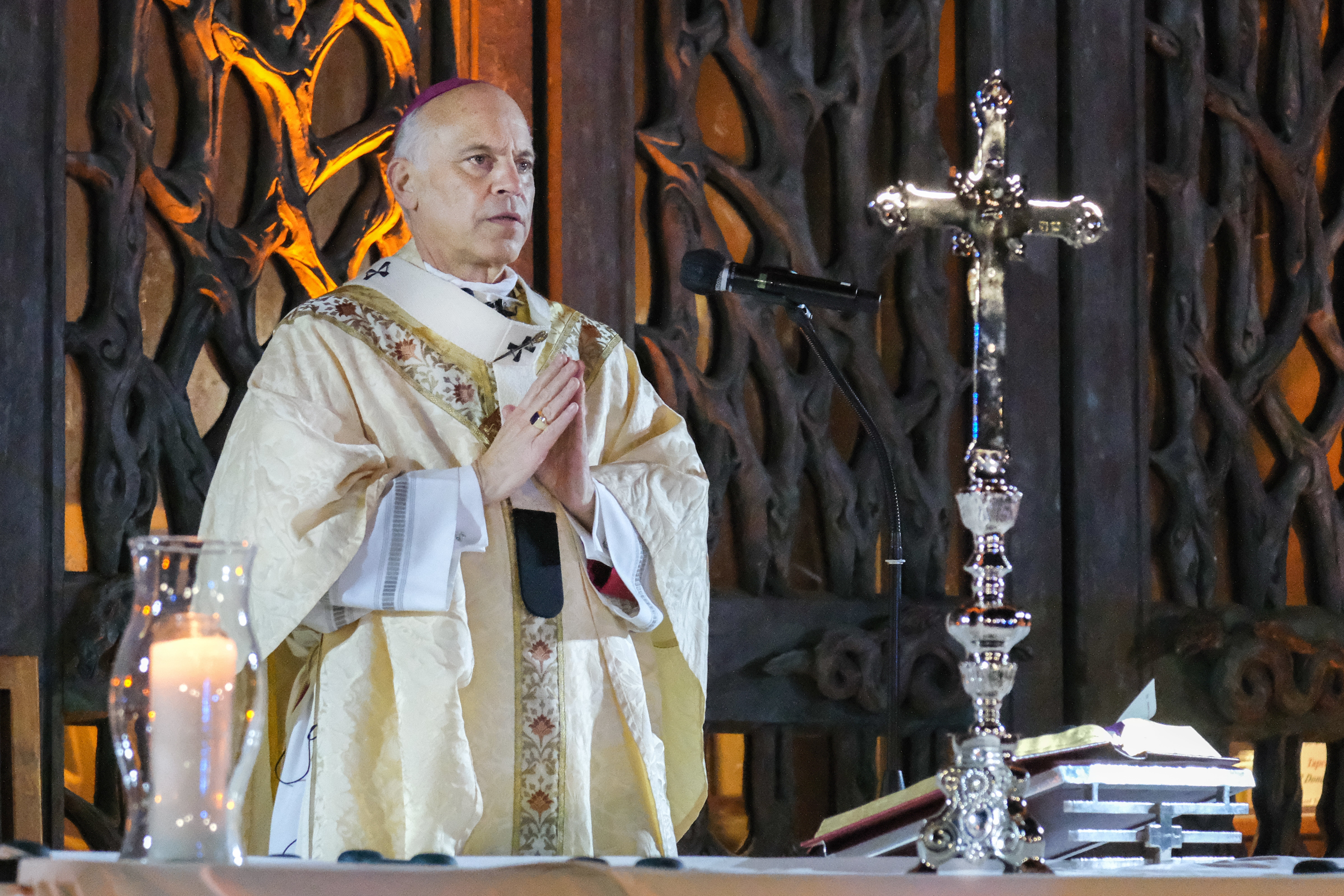By Michael Kelly
(OSV News) — A bishop in Jerusalem has appealed for Christians to start returning to the Holy Land on pilgrimage, insisting they should visit holy places located within Israel and the Palestinian Territories.
Auxiliary Bishop William Shomali of the Latin Patriarchate of Jerusalem made the comments after Israel’s tourism minister during a visit to the U.S. appealed to Christian leaders to recommence pilgrimages.
Bishop Shomali also revealed that he is hopeful that church leaders in the Holy Land will soon issue an invitation for Christian pilgrims to return.
Tens of thousands of Christian pilgrims had to leave the Holy Land on emergency flights following the Oct. 7 Hamas terrorist attacks. In the aftermath of the attacks, and Israel’s subsequent assault on Gaza, many airlines canceled flights to Tel Aviv. The absence of pilgrims has had a dramatic effect on the region’s tiny Christian minority in particular, given that many Christians are employed working with pilgrims.
“Be our ambassadors in words and deeds,” Tourism Minister Haim Katz said.
“The best way to support Israel is to visit Israel. Come again this year, to strengthen yourselves and to strengthen us,” the minister told the annual National Religious Broadcasters Convention in Nashville, Tennessee, in late February.
“I would like to look at his invitation in a positive way, because if people come to visit Israel, they cannot skip Bethlehem or Jericho,” Bishop Shomali told OSV News.
Bishop Shomali, a native of Beit Sahour in the West Bank, the traditional site where the angels announced the birth of Jesus to the shepherds, said it is vital that pilgrims come and visit sites in Palestinian areas as well as in Israel.
“I believe that using (the term) the Holy Land is better than using Palestine or Israel in order to give to the pilgrimage a religious meaning, and not a political one,” he said. “If someone invites (pilgrims) to Israel, we understand that it is exclusive, and if the Palestinians invite (pilgrims) to visit Palestine, it is exclusive.
“As churches, we want people to visit Nazareth, Jerusalem, Tiberias and Bethlehem with other Palestinian places,” he said.
“I am pushing the assembly of the bishops of the Holy Land to publish a statement, which reaches all the Christians of the world, to invite them to return as pilgrims to the Holy Land,” Bishop Shomali told OSV News.
Israel considers Jerusalem its capital, while Palestinians claim it as a future capital for a Palestinian state. After the 1948 Arab-Israeli War, the city was divided with Israel holding the western side of the city while East Jerusalem, where most of the Christian holy sites including the site of the death and resurrection of Jesus are located, was taken by Jordan. However, Israel seized East Jerusalem in the 1967 Six Day War.
Bethlehem, the birthplace of Jesus, is located in an area of the West Bank controlled by the Palestinian Authority. However, since Oct. 7 residents of the West Bank have not been permitted to enter Israel and nearby Jerusalem — which is only five miles away. This has prevented the many Christian tour guides living in Bethlehem from working on the Christian pilgrim trail. Many Christian shopkeepers in the Old City are Christian, but being residents of East Jerusalem, they have Israeli IDs and are still permitted to work selling souvenirs and other religious objects to visitors.
According to Bishop Shomali, “It is true that there are difficulties because of security, but still Jericho and Bethlehem can be visited.” Encouraging people to visit Palestinian Territories is crucial today so that those barred from entering Israel can still make money to support their families.
“The visit to Bethlehem is possible, even during the war,” he told OSV News.
Since the Oct. 7 attacks and the absence of pilgrims, many Christians in areas such as Bethlehem have struggled financially with the lack of an income. Each year, in Catholic parishes all over the world, a special pontifical collection takes place to support the welfare of Christians in the Holy Land.
Meanwhile, hopes of a cease-fire before the beginning of the Muslim holy month of Ramadan the evening of March 10 faded that weekend. Negotiators say that a cease-fire remains off the table, and talks between Israel and Hamas appear to have stalled. The United Nations has previously warned that a quarter of Gaza’s population is on the brink of famine, and children are starving to death there.
According to the sources close to the pontifical charity Aid to the Church in Need, conditions for the small Christian community that remains in the Gaza Strip have deteriorated over the last four months. Since the conflict began, 30 Christians have died in Gaza.
The situation in Gaza is increasingly desperate, with the region divided into two parts: north and south. Finding food and fuel continues to be very difficult in the north, where exorbitant prices make life even harder.
“Five gallons of diesel, for example, cost $215, and only provide two hours’ worth of energy for the generators,” George Akroush, director of the Project Development Office for the Latin Patriarchate of Jerusalem, told ACN.
But despite these difficulties, one priest and seven women religious from three different congregations are working to support the Christians who found refuge in the Catholic parish of the Holy Family.
At one point, 700 people were in its compound, which belongs to the Latin Patriarchate of Jerusalem, but that number has decreased due to migration and death. At present, there are 560 people, including both Catholic and Orthodox Christians, 140 children under age 18 (60 with disabilities), and 84 people over age 65, ACN said in a March 13 statement.
According to Akroush, the 30 Christians who have died since the conflict began include the 17 victims of an attack on a Greek Orthodox parish compound in October, as well as the two women killed by snipers at the Holy Family Catholic Parish. Another 11 people died from chronic illness that could not be adequately treated.
With the help of organizations such as ACN, the Latin Patriarchate of Jerusalem has been able to provide medicine and food and fund some medical procedures. The patriarchate also is paying the salaries of schoolteachers and people who had been working for religious institutions, allowing them to support their families.
For ACN’s project partner, the mass destruction of houses and infrastructure makes the future of Christians in the region highly uncertain. “They say that 62% of houses have been destroyed, and that reconstruction will last until 2093, according to some international and U.N. agencies active on the ground. With all this, one must ask: what future is there for Christians in this country? What is going to happen? Nobody knows. Please pray for us, and do not forget the suffering of Christians in this part of the world,” said Akroush.
Michael Kelly writes for OSV News from Dublin.


